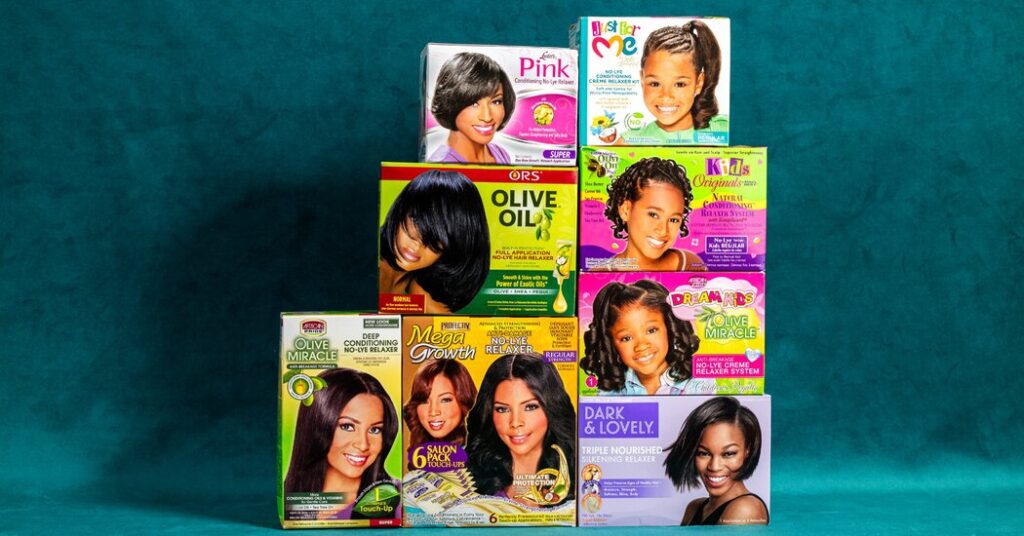Straight hair has long been the dominant social standard of beauty for Black women, from the working class to those in government and business, celebrities and even White House officials. Michelle Obama said in 2022 that she felt she had to straighten her hair instead of wearing it natural while serving as first lady. “No,” she said. “They're not ready for that yet.” While people can straighten their hair with heat, the vast majority of Black women (an estimated 89%) have used easier and more affordable chemical relaxers at some point in their lives, often starting in childhood.
But there is growing evidence, much of it hidden from the public, linking these products, which are marketed directly to black women and girls, to a range of adverse health outcomes for women.
Here's what you need to know about relaxers and your health.
Growing evidence links relaxants to poor women's health
For decades, scientists have struggled to understand why black girls show signs of early puberty (breast development and pubic hair growth) more than twice as often as white girls and earlier than girls of other ethnicities. The early onset of puberty and menstruation is associated with a series of reproductive health problems. Many of these hormone-related health issues are more prevalent in black women than other women, including aggressive breast cancer, which contributes to a 28% higher mortality rate in black women than in white women.
Chemical relaxers contain a number of ingredients that are known to disrupt the endocrine system.
Applying these products to the scalp often causes burns and abrasions, efficiently exposes the body to endocrine-disrupting chemicals, and studies in recent years have linked heavy use to an increased risk of breast and uterine cancer.
The product is not regulated
Chemical relaxers line the shelves of beauty supply and drugstores in Black communities, with brightly colored boxes and adorable little girls with flowing, straight hair in kid-friendly packaging. And the labels can't be trusted: A 2018 report found dozens of hormone-disrupting chemicals in hair care products used by Black women, but most of the toxic ingredients aren't listed on the packaging.
Relaxers are marketed similarly in Europe and the US, but the active ingredients are different. The European Union regulates more than 1,300 substances in cosmetics, while the FDA bans or restricts only nine. Hair relaxers marketed to children in the US have been found to contain the highest concentrations of five of the chemicals banned in the EU. The FDA has proposed banning formaldehyde, an ingredient in many relaxers that the agency itself has linked to cancer, but no deadline has been set, and banning one ingredient won't address the rest.
Despite growing awareness of the risks, the products remain popular
In late 2022, after compelling new research was published showing a link between chemical relaxants and uterine cancer, billboards, the internet, television messaging and a class action lawsuit was filed bringing together thousands of plaintiffs. The lawsuits have been consolidated into a single lawsuit overseen by a federal judge. Multiple companies are named as defendants and are currently in the discovery phase.
Meanwhile, the products have enjoyed a resurgence on social media, with a TikTok video using the hashtag #relaxerisback garnering more than 24 million views, showing smiling young women showing off their straightened hair.



